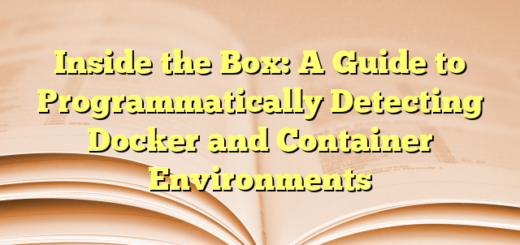Model context protocol – A multi vendor tool
MCP (or an MCP-like system) can absolutely integrate tools/APIs from different vendors, acting as a universal orchestrator. This is one of its most powerful features—it dynamically selects and combines services from multiple providers based on context, without requiring hardcoded vendor-specific logic.
How MCP Works with Multi-Vendor Tools
- Tool Discovery
- MCP queries a Metadata Server (MSC) or a service registry (like a directory of APIs).
- This registry lists tools from different vendors, e.g.:
Google_Places_API(for locations)Stripe_API(for payments)OpenWeatherMap(for weather)
- Dynamic Selection
- When a user asks, “Find a coffee shop near me and process a $5 payment,” MCP:
- Identifies the need for two tools:
- A location service (Google/Yelp)
- A payment processor (Stripe/PayPal)
- Checks availability, latency, cost, or API keys to pick the best option.
- Identifies the need for two tools:
- When a user asks, “Find a coffee shop near me and process a $5 payment,” MCP:
- Execution
- Calls
Google_Places_API→ gets coffee shop list. - Calls
Stripe_API→ processes payment. - Combines results into a coherent response.
- Calls
Key Benefits of Multi-Vendor Tool Integration
| Feature | Advantage |
|---|---|
| Vendor Agnostic | Not locked into one provider (e.g., can switch from Stripe to PayPal dynamically). |
| Best-Tool Selection | Can choose APIs based on cost, speed, or accuracy (e.g., use OpenWeatherMap for cities but AccuWeather for rural areas). |
| Failover Handling | If one vendor’s API fails, MCP can retry with a competitor (e.g., fallback from Google Maps to Mapbox). |
| Context-Aware Chaining | Can combine tools from different vendors in a workflow (e.g., Twilio (SMS) + SendGrid (email) + Slack (notifications)). |
Example: Travel Assistant Using Multi-Vendor APIs
User Query:
“Book me a flight to Tokyo, reserve a hotel near Shibuya Station, and notify my team on Slack.”
MCP’s Actions:
- Checks MSC for available tools:
- Flights:
Expedia_API(vendor A) - Hotels:
Booking.com_API(vendor B) - Notifications:
Slack_API(vendor C)
- Flights:
- Sequentially calls:
Expedia_API→ Books flight.Booking.com_API→ Reserves hotel (using flight dates).Slack_API→ Sends confirmation.
Challenges & Solutions
| Challenge | Solution |
|---|---|
| API Inconsistencies | MCP uses adapters to normalize inputs/outputs (e.g., converting Fahrenheit to Celsius for weather APIs). |
| Authentication | Stores vendor API keys securely and injects them at runtime. |
| Rate Limits | Monitors usage and rotates vendors if quotas are exceeded. |
Real-World Implementations
While “MCP” isn’t a formal standard, these systems already do something similar:
- Microsoft’s TaskWeaver – Coordinates between Azure, OpenAI, and third-party APIs.
- LangChain Agents – Can route queries to Google Search, Wolfram Alpha, etc.
- AutoGPT – Dynamically picks tools like web browsers, code executors, etc.
Conclusion
Yes! An MCP-like system can seamlessly integrate tools from multiple vendors, making it a powerful, flexible orchestrator for AI-driven workflows.


